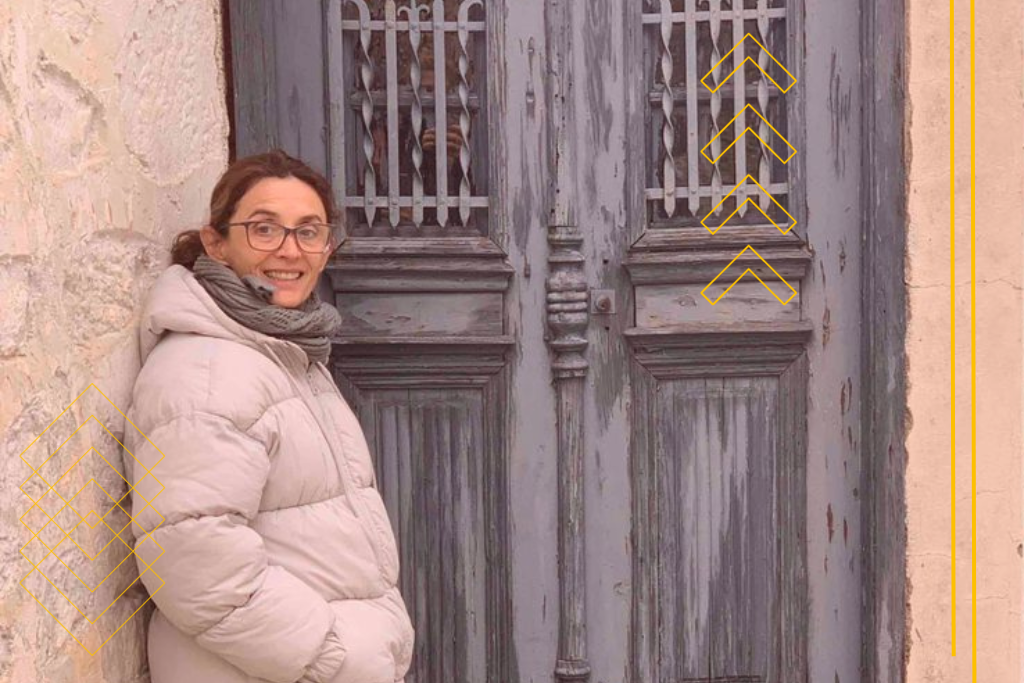Commencing on an Erasmus program marks the beginning of a transformative journey that extends beyond the academic sphere. Some say it’s the first chance for students to live far from their families and develop their personalities by learning about new civilizations & cultures. Today, we delve into the insights provided by Vasiliki Papavassiliou, an administrator at the Athens University of Economics and Business with over two decades of experience as an Erasmus Programme Officer.
Vasiliki sheds light on the importance of finding employment during or after the Erasmus journey and the role that staffing agencies, such as Speakit, can play in facilitating this transition.
As we chat with Vasiliki, we uncover the unique challenges and exciting opportunities that Erasmus students encounter while seeking internships or employment abroad.

Now, let’s dive into the details of our conversation with Vasiliki, about the significance of working while traveling and how it aligns with the Erasmus philosophy of global education. From overcoming language barriers to adapting to new cultures, Vasiliki shares valuable insights that can guide and inspire current and future Erasmus participants.
- Hello Vasiliki! We are very happy to speak with you. To start, we would like to ask you are there many students visiting Greece, and how do they describe their experience?
Sure! Many students visit Greece to study abroad.
Greece is a popular destination for students, especially those interested in history, archaeology, and beautiful landscapes.
They’re diving into a whole new educational system and exploring various teaching methods.
The vibrant atmosphere, delicious cuisine, and friendly locals leave a positive impression. Students often describe Greece as a blend of ancient charm and modern vitality, making it a unique and memorable destination. The beautiful islands, crystal-clear waters, and Mediterranean climate add to the overall appeal, making it a fantastic experience for many.
- What specific needs and challenges do Erasmus students typically encounter when seeking internships or employment opportunities abroad?
Erasmus students often face both exciting opportunities and unique challenges when seeking internships or employment abroad. Based on what I’ve seen, they often express concerns and face hurdles related to job placements like:
- Language Barrier: The language barrier in Greece is not an issue, we have English as a second language. Also, we speak many other European languages like French, German, etc, so they will not meet much trouble in inclusion.
- Cultural Adjustment: Adapting to a new work culture and environment can be challenging. Understanding workplace norms, communication styles, and professional etiquette may take time.
- Housing and Living Arrangements: Finding suitable and affordable housing in a new country can be a struggle. Students may also face challenges with daily tasks like grocery shopping, transportation, and healthcare.
- Networking and Social Integration: Building professional networks in a new country can be crucial for career growth. Erasmus students may find it challenging to establish connections in a foreign professional community.
Despite these challenges, many Erasmus students also develop valuable skills such as adaptability, cross-cultural communication, and independence, which can enhance their overall employability in the long run. The Erasmus experience is not just about academic learning but also about personal and professional growth in a global context.
- What efforts does Erasmus currently make to establish and maintain connections with diverse industries for student placements?
Erasmus excels in connecting with diverse industries for student placements through collaborative initiatives and strategic partnerships with a wide spectrum of employers, businesses, NGOs, government agencies, and research institutions. Comprehensive career services, including workshops, seminars, counseling sessions, and online platforms are provided to equip students with the necessary skills for successful job searches and interviews.
The alumni network contributes insights and networking opportunities, while industry-specific events facilitate connections. Erasmus tailors programs to industry needs, ensuring students have the skills for successful placements. In essence, Erasmus’s commitment to building connections with diverse industries underscores its dedication to enhancing students’ employability and fostering professional growth.
- Regarding resource allocation, how does Erasmus currently manage the costs associated with placement services? Do you provide relocation packages to the students?
Erasmus strategically allocates resources for cost-effective placement services, prioritizing crucial student support. Financial aid, a key element, includes Erasmus funds and grants, given by the European Commission, for essential expenses like travel and accommodation. Collaborations with partners bolster resources, with joint funding initiatives or contributions from supportive employers. Tailored financial support packages, including stipends, cater to diverse student needs during placements.
Recognizing relocation challenges, Erasmus extends assistance, offering guidance on accommodation and local amenities.
Crucially, Erasmus prioritizes transparent communication with students. Clear and comprehensive guidelines are provided to ensure that students are well-informed about the available financial support and relocation assistance. This transparency enables students to make informed decisions and access the necessary resources to make their placement experience successful and enriching.
- Do Erasmus students often secure employment opportunities, either through part-time jobs or internships, while pursuing their studies abroad? If so, what are some common fields or industries where students tend to find these opportunities?
Yes, many Erasmus students seize opportunities for part-time jobs or internships while pursuing their studies abroad. This not only provides them with valuable work experience but also contributes to their cultural immersion and integration into the local community. Common fields or industries where Erasmus students often find such opportunities include Hospitality and Tourism, Retail, Language Teaching and Tutoring, IT and Technology, Marketing and Communication, Healthcare and Social Services, and customer support.
It’s important to note that the availability of opportunities can vary based on the host country and the specific city or region where students are studying. Additionally, the Erasmus program itself may provide resources and support to help students find and navigate these employment opportunities while ensuring a balance with their academic commitments.
- In your experience, can a recruitment agency contribute to facilitating a smoother transition and integration for Erasmus participants by helping them find employment?
Absolutely! Recruitment agencies like Speak play a vital role in helping Erasmus participants navigate the job market abroad. Leveraging local expertise, these agencies guide students to suitable employment opportunities, bridging the gap between participants and potential employers.
With extensive industry connections, recruitment agencies align students with positions that match their skills and career goals. They personalize the job search process through comprehensive assessments, increasing the chances of successful placements and smoother integration into the local workforce.
Beyond job searches, recruitment agencies assist with onboarding and workplace integration, ensuring a positive experience for Erasmus participants. Effective communication between students and agencies is key, allowing participants to express preferences and goals for a personalized job search. Integrating Erasmus program resources with recruitment agency expertise creates a strong support system for students seeking employment in a new cultural and professional setting.
- How feasible would it be for an Erasmus student to stay and work in Greece after the Erasmus program concludes?
The feasibility of an Erasmus student staying and working in Greece after the program concludes depends on various factors, and while it is generally feasible, there are considerations to take into account such as Job Market Conditions.
Having a recruitment agency like Speakit as a resource is beneficial for Erasmus students. The agency’s expertise can serve as a valuable complement to the support services provided by the Erasmus program and the host university. Together, they form a robust support system, addressing potential challenges and uncertainties that students may encounter while transitioning from academia to the professional realm in a foreign country.
